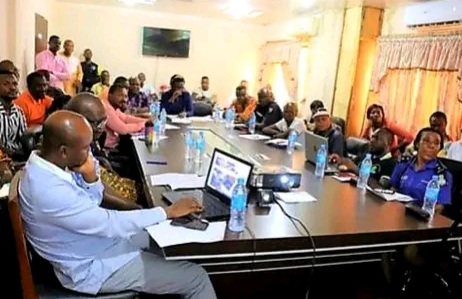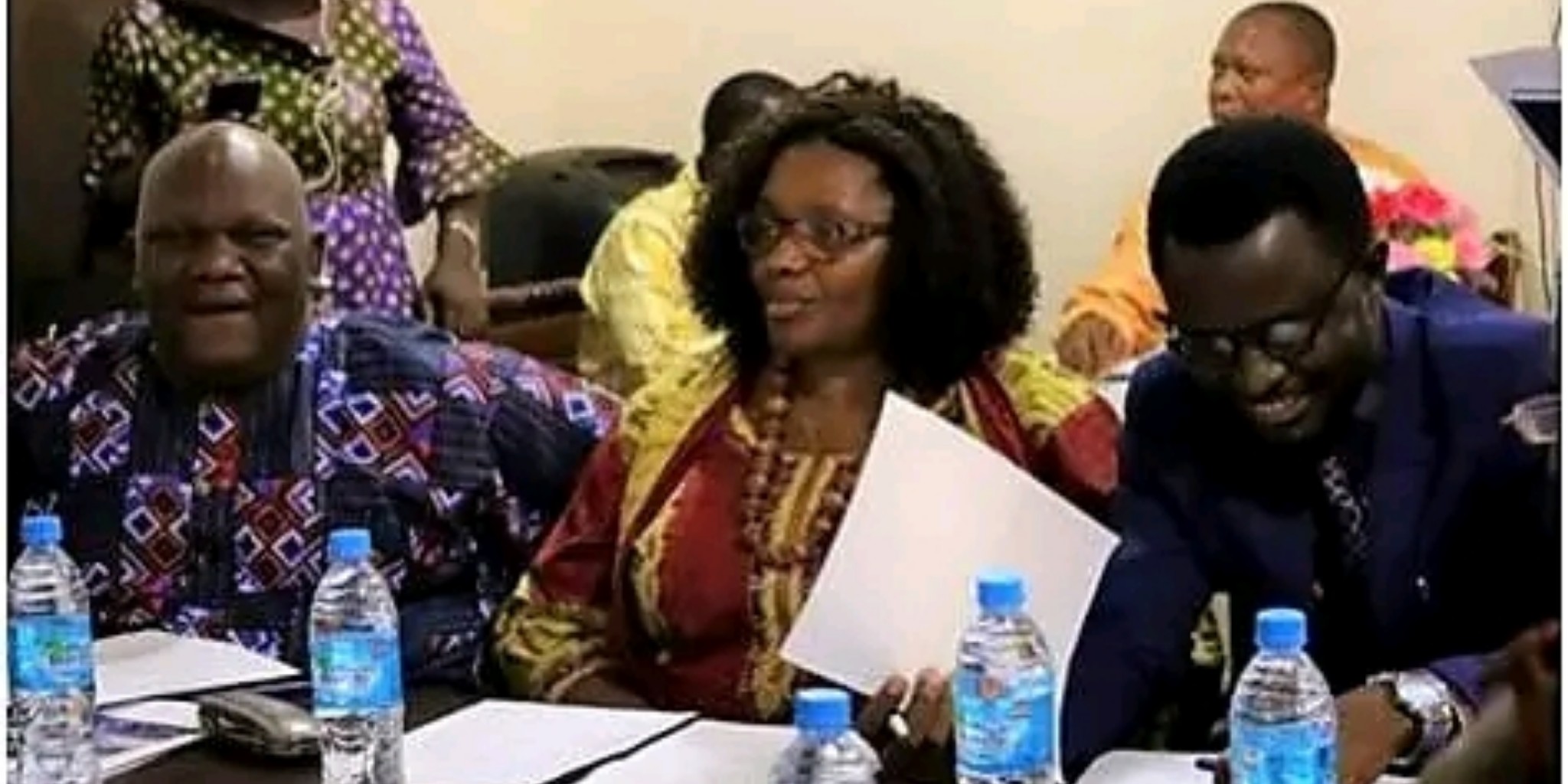The access to safe and clean water has been a major issue in the western area. As part of their efforts towards engaging Government and development partners to find sustainable ways of addressing the current water situation in the Western Urban Area in the country, the Human Rights Commission Sierra Leone (HRCSL) has held a one-day validation workshop for draft monitoring report on the right to access clean, safe and affordable water supply in the Western Urban Area.
Giving a summary of the Commission’s findings, the Vice Chairperson of the Human Rights Commission Sierra Leone, Victor I. Lansana Esq. said that the Commission observed that greater percentage of residents living in various communities visited do not enjoy the right to access clean, safe and affordable water supply from the Guma Valley Water Company Urban grid.
He maintained that pipe-borne water supply from GVWC is not available in most of the facilities and communities visited; therefore, those facilities and communities resort to alternative water sources such as boreholes, water wells, streams and rain. In facilities and communities where pipe borne water is available, the supply most times is irregular.
“Guma Valley Water Company, which is the sole supply of pipe-borne water to the Western Area was observed to be closer to some facilities and communities and far away from others especially for facilities and communities at the East end of Western Urban of Freetown,” he pointed out adding how the cutting of water pipes and illegal connections by unscrupulous persons hinder the flow of pipe-borne water into facilities and private residences.
Dilating on the recommendations of the report, the Executive Secretary of the Human Rights Commission of Sierra Leone, Joseph Kamara, said they are documented based on the Commission’s findings, observations, feedback from respondents in various institutions and communities visited, and are borne out of stakeholders’ engagements in the various zones and that the recommendations have been categorized under the headings, Schools, Hospitals/health clinics, Police Stations and communities.
He also suggested that the Guma Valley Water Company (GVWC) should construct new pipe networks for water supply and rehabilitate existing ones to ensure the availability of pipe-borne water in schools.
He stated that the Ministry of Basic and Senior Secondary School Education (MBSSE) should ensure the timely disbursement of school subsidies to enable school administrators pay water bills and maintain water supply systems in schools.
The Executive Secretary furthered that the Ministry of Health and Sanitation (MoHS) should provide adequate funding for the maintenance and rehabilitation of water systems in health facilities.
That the MoHS should ensure that its engineering section re-assesses and rehabilitates the plumbing systems in the entire facilities visited more particularly the King Harman Road health facility.

He stated that GVWC should construct pipe borne water systems and install water storage tanks to
ensure that water is available, accessible and sufficient in Police Stations/Posts at all times, more especially the Kissy Police Barracks, continuing that the Executive Management Board (EMB) of the Sierra Leone Police (SLP) should provide adequate funding for the installation of water storage tanks at strategic locations within the Police stations/barracks.
The Executive Secretary added that the Ministry of Water Resources (MoWR) should provide funds for the construction of additional boreholes as alternative sources of water supply in order to ensure easy access to clean, safe and affordable water within the facilities.
He also suggested that GVWC should construct sustainable pipe borne water systems in communities to ensure the availability and accessibility of clean, safe and affordable water supply more especially the Old Wharf Community.
He furthered said that GVWC should erect more water storage tanks at strategic locations within communities to ensure regular supply of water to residents.
Giving the conclusion of the report, he said water is a fundamental necessity for life and human existence on earth and is intrinsically linked to its availability, accessibility and affordability.
He expressed the view that strategies and stopgap measures put in place by the Government of Sierra Leone, such as the installation of tanks, the digging of water wells/boreholes with solar powered electricity systems have not been sustainable solutions to addressing the problems of water in the Western Area Urban, Freetown.
He concluded that through this monitoring exercise, the Commission has been able to have a clear picture about the water situation in the targeted facilities and communities.
Drawing from its findings and observations, HRCSL can safely conclude that access to clean, safe and affordable water for drinking and other domestic purposes remains a challenge in the facilities and communities visited, pointing out that the report will therefore serve as a tool to engage Government and development partners to find sustainable ways of addressing the current water situation in the Western Urban Area.











